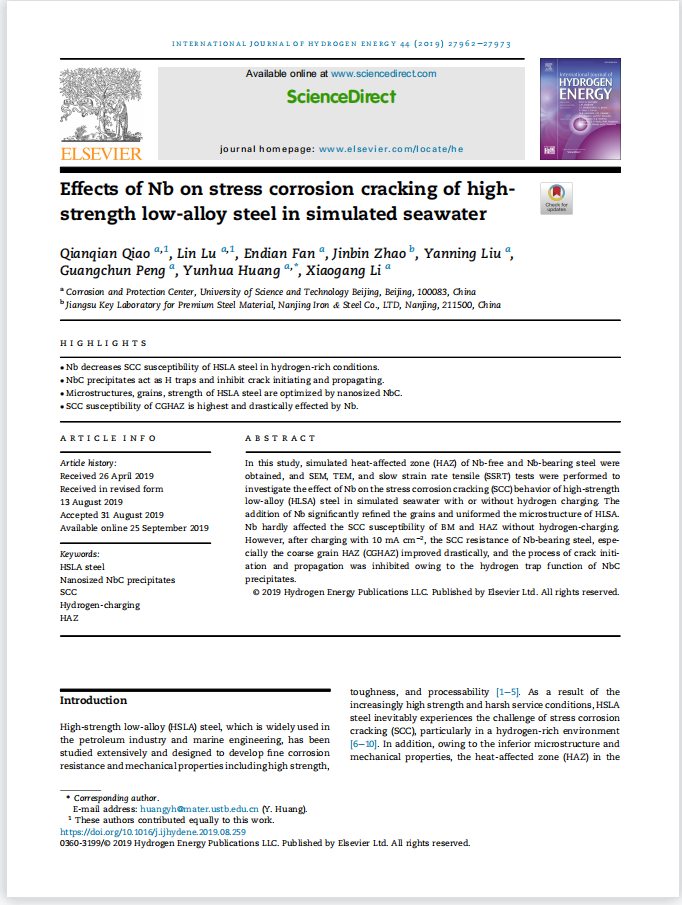In this study, simulated heat-affected zone (HAZ) of Nb-free and Nb-bearing steel were obtained, and SEM, TEM, and slow strain rate tensile (SSRT) tests were performed to investigate the effect of Nb on the stress corrosion cracking (SCC) behavior of high-strength low-alloy (HLSA) steel in simulated seawater with or without hydrogen charging. The addition of Nb significantly refined the grains and uniformed the microstructure of HLSA. Nb hardly affected the SCC susceptibility of BM and HAZ without hydrogen-charging. However, after charging with 10 mA cm−2, the SCC resistance of Nb-bearing steel, especially the coarse grain HAZ (CGHAZ) improved drastically, and the process of crack initiation and propagation was inhibited owing to the hydrogen trap function of NbC precipitates.
